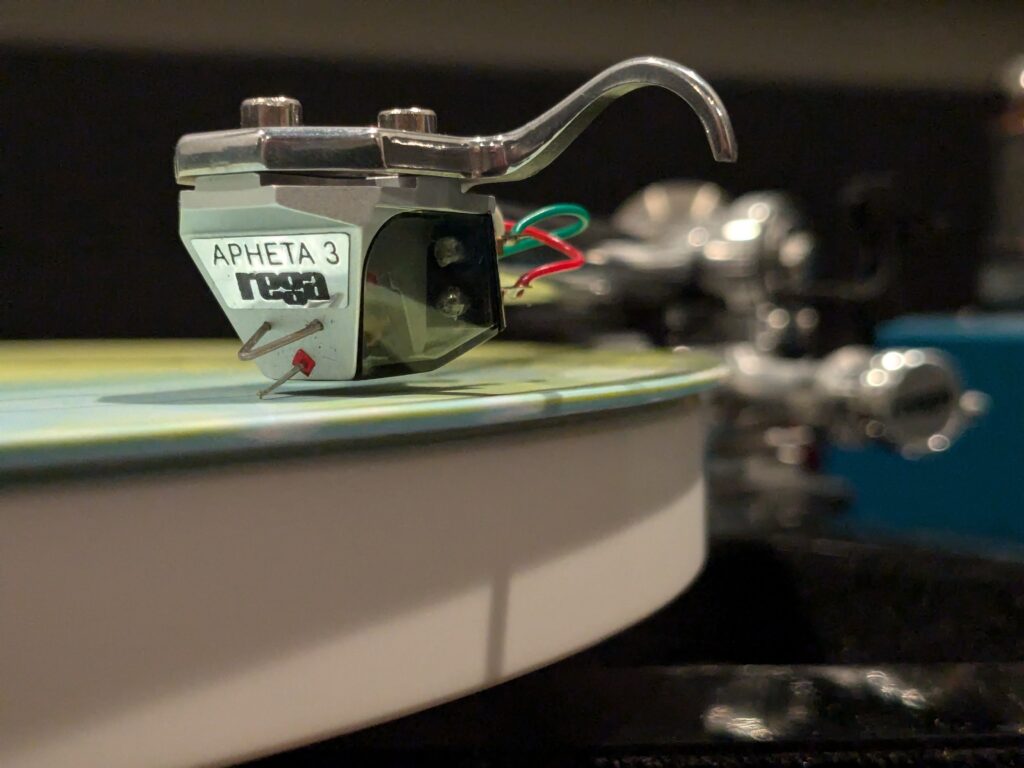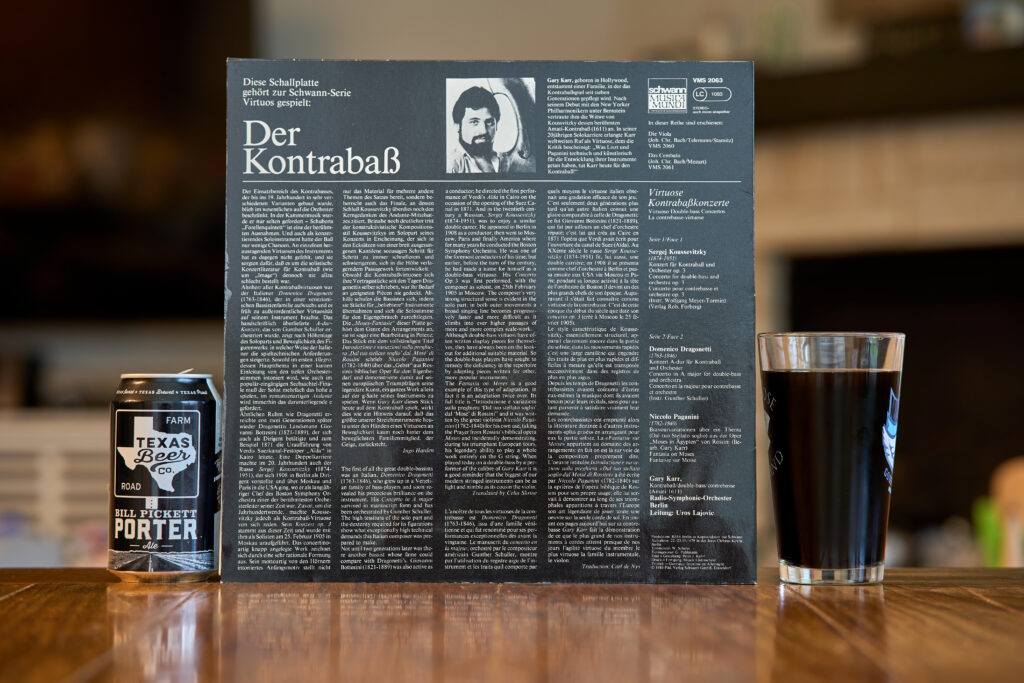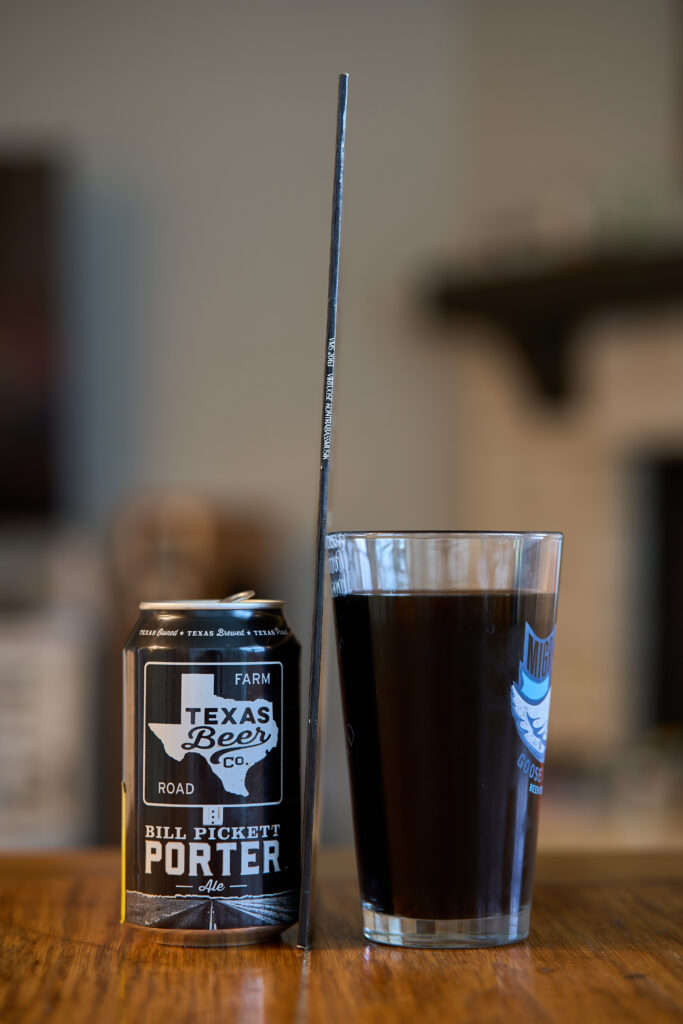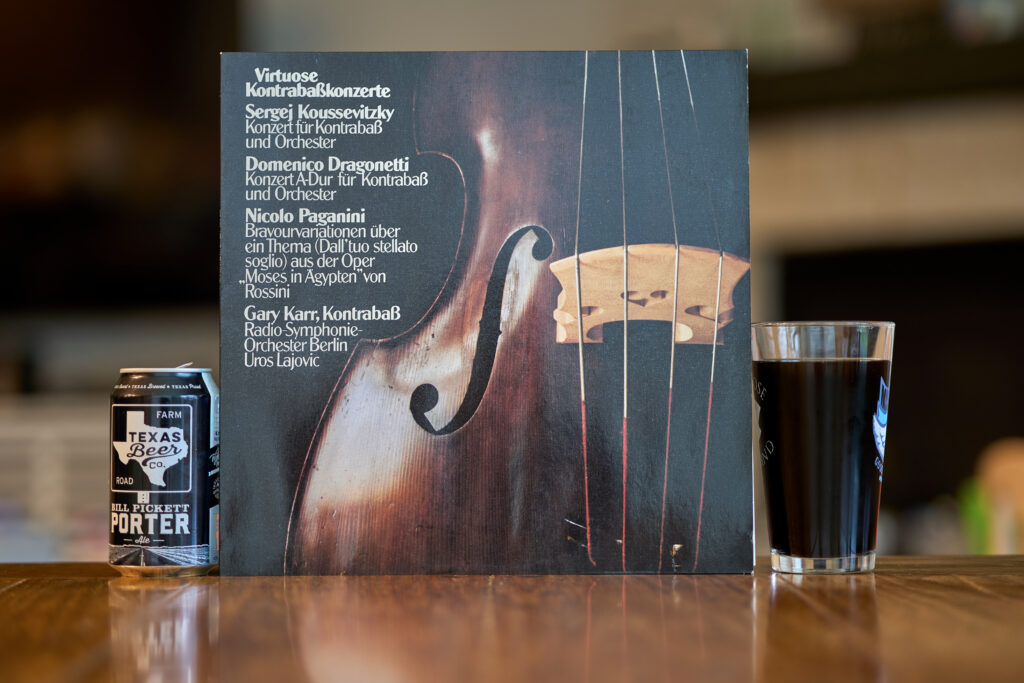For those in the know, I am a rather big Double Bass enthusiast. Call me biased since I play the instrument myself, but it’s totally better than the cello in every way possible. Growing up, there was a particular album by Gary Karr that I always loved. Partly because of its sound, but also because they were pieces that I myself have played.
Okay, this isn’t a new record. But when I finally got into vinyl (circa 2013), this album was added to my must haves. It has taken this long for me to track down a copy that was of good enough quality to actually write about.
The System
This album is getting the works, being played on my new-and-improved reference system.
On the front-end side is my faithful Rega RP10 sporting an Apheta 3 cartridge. This turntable has long been my reference, and while I’m sure there is better out there… certainly it can’t be cheap! As an aside, I’m considering the Rega Aphelion 2… I know it’s pricey but I just can’t help but wonder what the difference is.

The RP10 feeds the Rega Aura reference phonostage. This was a huge jump from the Aria and I can wholeheartedly recommend it to anyone serious about vinyl playback. The difference isn’t even close.
On the amplification side is my Rega Elicit mk3. The pre-outs from the Elicit are then feeding my reference Triode Lab EL84M-FFX monoblocks. Both are then being used to passively bi-amp the Q Acoustics Concept 500 loudspeakers – Elicit on the LF and EL84M on the HF.
The Elicit isn’t a permanent addition to the system, though it sounds very good for how old it is. At some point I will replace it with something newer, though I haven’t quite decided what that looks like since I have limited space to play with. An integrated with pre-outs would be easiest, though proper pre/power amp separates would give me the best flexibility. Only problem is that I don’t have room. So, we’ll see.
It’s also entirely possible that I simply get pre/power separates and forego bi-amping entirely. I’ve been eyeing the new Rega separates, the Mercury and Solis.
Music
The first three parts are from the Concerto for Double-Bass & Orchestra, Op. 3 – composed by Serge Koussevitsky. Surely this is the piece that all bassists think of when they hear Koussevitsky. For those that don’t know, he was the Double Bass Virtuoso of his day. Anyways, back to the music!
Of all the pieces on this album, this one is my nearest and dearest to my heart. It is composed of three movements – Allegro, Andante, and another Allegro. The first and third movements intentionally sound similar while the middle is sweet and dreamy. Before dropping the needle, I was pretty worried that the differences wouldn’t be so grand. And, just like other times, I was very wrong.

I had always thought with the digital that the Gary Karr, while sounding smooth, didn’t sound like he was playing in a grand hall. The vinyl fixed that issue. It’s like all of the air and minuscule details went missing somewhere between the record and the digital release.
I was so enveloped with the sound that I forgot to take any notes until the third movement. Just like I mentioned earlier, the Andante is truly wonderful to listen to, especially the ending. The vibrato comes through so much cleaner and more realistic than the digital.
The final Allegro is a bit of a special piece for me because it is my favorite not only to listen to, but to play. Just as the previous, it was a joy to listen to.
The next suite was written by yet another Virtuoso on the Double Bass – Domenico Dragonetti. Concerto for Double-Bass & Orchestra in A. Everytime I hear this, I’m reminded of just how wonderful of a bassist Gary Karr is. I have played this suite before as well and what Gary plays is his own take on it. Not in a bad way though.
Compared to the digital, the whole suite sounded a bit more open. I could close my eyes and more easily see the hall they were playing in. So far, that seems to have been the theme… which is a great thing in my opinion. I would have hated to purchase this and it be worse! That’s certainly happened before…
The Beer

It wouldn’t be a vinyl review without a beer. And this time is no different.
Rounding out this session was a new one, the Texas Beer Co. Bill Picket Porter. Yea, I had a hard time picking a beer that I truly wanted to pair with this wonderful album. This one was roasty and had a slight kick.
That said, it was still quite enjoyable to sip on while listening to music. Well, aren’t most beers! Except for pilsners I guess.
Overall, I gave this a 3.25 / 5, slightly below my average 3.5. This really came down to the bite at the end of every sip. While I didn’t mind that bit, having it while enjoying music probably wasn’t the wisest decision.
But such is life when we’re trying new beers.
Until next time. Cheers!

